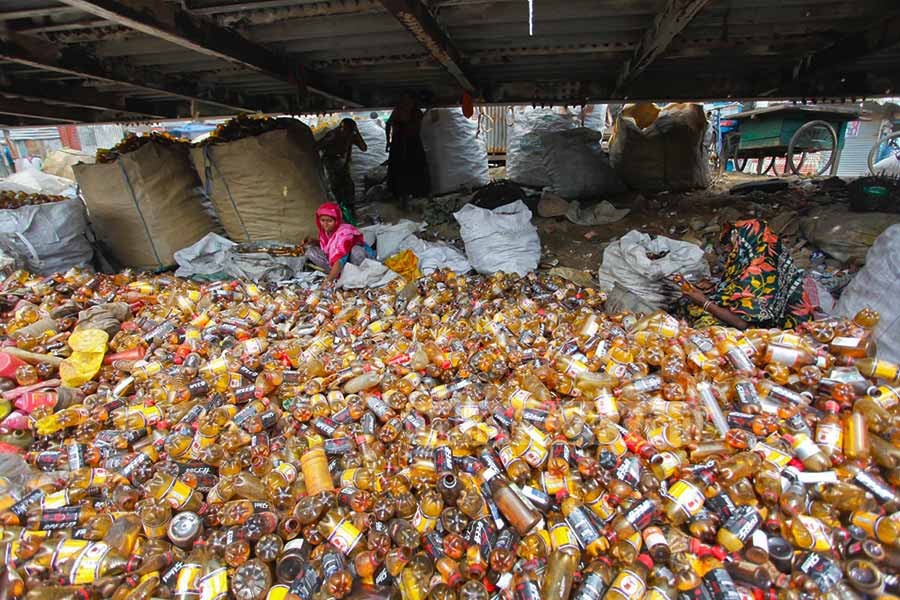Increased use of plastic goods and materials is a fact of modern life. Whether it is indicative of socio-economic development is, however, yet to be clear. Apparently, though, it signifies a radical change in lifestyle integral to higher standard of living. And higher living standard is impossible without economic development of a country. On that count, the projected phenomenal rise in the per capita use of plastic from just six to seven kilogram now to 30 kilogram by 2030 indicates not only lifestyle change but also significant socio-economic development. The country's plastic sector is on course of flourishing accordingly. Already, local products are in a state of rivalling many of the international goods and utensils. Their design, look and finishing are quite attractive and the advantage of being light and easy to handle only enhances their demand. Some of the plastic materials are disposable too after one-time use.
Such conveniences speak for the growth of the plastic industry the world over. A late entrant to this sector, Bangladesh has by now made enough gains in this enterprise. The holding of an international plastic fair in the capital is recognition of the country's growing confidence to take up further challenges beyond the border. Hopefully, the manufacturers of plastic goods here will be able to prove a few points through this exposition. Pitted against their foreign counterparts, they will underline where they have an edge over their competitors and where they need to improve in order to bridge the gap, if any. The plastic manufacturers have already an expanded local market to feed to. Now they need to make their forays into foreign markets. In that task, the government must come up with appropriate policies on import of raw materials, duty structures and credit facilities.
Already the local plastic market is Tk 250-billion strong. Its further growth -- five times by 2030 as projected -- will bolster the economy no doubt. But at the same time, there is need for streamlining the industry in order to make them environmentally as friendly as possible. Happily, here is a material that can be reused through reprocessing. To avoid the attendant ills of a throw-away culture and discarded or worn-out materials, the need is to collect those in an efficient manner so that the environment remains unpolluted.
At this stage of development, most industries in Bangladesh enjoy some regulatory concessions. The plastic industry is no exception. But in the days to come, unregulated industries will pose danger to this small country. In case of effluent and waste treatment, laxity should not be tolerated at all. Modern effluent plants can be set up in industrial parks. But to do this, the manufacturers will have to be accommodated at such a park first. The manufacturers of plastic have a demand for such an industrial park for long. If this materialises, there is a possibility of minimising environmental pollution by plastic factories. The manufacturers have given a good account of their productivity, what they now need is an enabling regulatory framework to put things in order.


